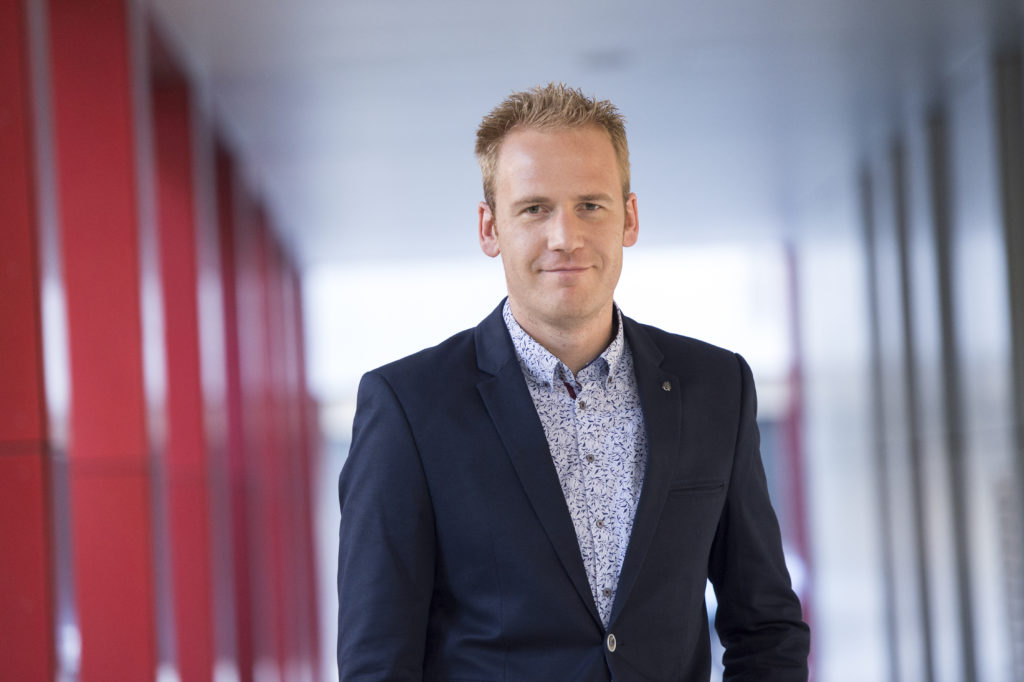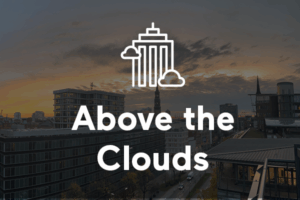 What makes for a good leader? By understanding employees‘ motivations and interests, leaders can inspire and transform their organizations which is increasingly important in a business enviroment where agility and speed are key. Dr. Pascal Molenberghs, Senior Research Fellow at the University of Melbourne, is an internationally renowned researcher whose work has been featured in Time Magazine, The Sydney Morning Herald and New York Magazine.
What makes for a good leader? By understanding employees‘ motivations and interests, leaders can inspire and transform their organizations which is increasingly important in a business enviroment where agility and speed are key. Dr. Pascal Molenberghs, Senior Research Fellow at the University of Melbourne, is an internationally renowned researcher whose work has been featured in Time Magazine, The Sydney Morning Herald and New York Magazine.
In our Leading Transformation report, we highlight how many C-Suite roles are transforming in Business 4.0 organizations. Leaders need to be innovative, drive culture change and evangelize customer centricity. And with a movement to increase diversity in leadership positions, empathy will also be a valuable and important quality of leaders. What should Boards of Directors and C-Suites know about empathy? How will empathy help in actualizing transformation across enterprises?
Empathy has three components including the ability to:
- share emotions (e.g., feeling sad when seeing someone else suffering),
- understand emotions (e.g., a psychologist who understands why a client is feeling a certain way), and
- regulate emotions (e.g., a surgeon who needs to control their emotions when operating on a patient).
A good leader should possess all three components to successfully connect with employees and external stakeholders to take them along a transformational process and make correct decisions. For example, a leader needs to know and understand when and why their followers are feeling distressed to connect with them and earn their trust but sometimes must control their own emotions when making difficult decisions (e.g., firing someone that they like for the benefit of the company).
However, having strong empathic abilities is not enough. First, people often confuse empathy with sympathy (i.e., caring about others). A person might share and understand others’ feelings (i.e., empathy) but might not care about them (e.g., a psychopath might use their strong empathic abilities to manipulate others while he or she doesn’t care about hurting their feelings). Second, while empathy and sympathy are often associated with prosocial behavior, it can also lead to amoral behavior. For example, a leader might have strong empathic feelings and sympathy for a person and promote that individual for a role that he or she is not the best candidate for. To conclude, while having empathic abilities is important for good leaders, understanding the limitations and necessary additional skills are equally important.
While today’s workforce spans five generations of employees, the workforce of the future will likely include managing both people and machines. What psychological traits should leaders possess to manage machines?
Through evolution, our brain has developed to deal with other people and tangible objects and people generally understand that they require different skill sets. For example, a leader might have good people skills but might have no clue how to fix the machines in the workplace or vice versa. What is less known is that dealing with intangible objects such as the internet, digital data, cloud computing and software are recent developments for our brain that often require different psychological processes and traits. A good example is the difference between stealing tangible objects such as CDs compared to intangible object such as software. While in the past, only a very small proportion of the population stole CDs, at the height of Napster a large proportion of the population was downloading music illegally.
In my own research, I have found that our brain responds differently to these two types of transgressions and digital companies need to be aware of this. Because often different psychological processes are involved when dealing with intangible objects, a leader might be good at fixing tangible objects but might have no clue how to interpret and analyze complex digital data. Depending on the skills required for the job, we will need to develop and use new assessments and training modules to recruit and train the next generation of leaders in Business 4.0 organizations.
You are an internationally renowned researcher on the neuroscience of leadership and empathy. You’ve conducted brain imaging research, like the study described in The Conversation which finds that aspirational leaders should create a vision and group identity that their followers can identify with. What can next generation leaders gain by having a deeper understanding of how to apply neuroscience to leadership development?
Our brain is our most important organ. It is responsible for all our thoughts, feelings and cognitive skills. Therefore, understanding how it works, how to increase its performance and how it is affected by our environment is of critical importance for the next generation of leaders. For example, how does stress affect our brain and thus our performance? How do we understand others and empathize with them and does group membership influences these processes? Does our brain processes information in an objective way? These are just some of the questions I try to answer in my research.
For example, in our study discussed in The Conversation, we found that our brain processes the same inspirational messages from leaders in a totally different way depending on whether followers identify with the group or not. Inspirational messages were processed and engaged with much more if people identified with the group. Therefore, it is of critical importance for group leaders to create a shared vision of the future that their employees and external stakeholders can identify with, otherwise their inspirational messages will fall on deaf ears.
Here you can read the original article.



